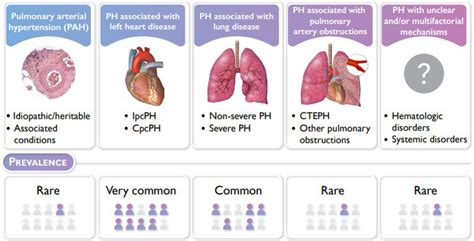Intro
Complete Blood Count (CBC) tests are a crucial diagnostic tool used by healthcare professionals to assess various components of the blood, providing insights into a person's overall health. The test measures different parameters, including red blood cell count, white blood cell count, platelet count, and hemoglobin levels, among others. Understanding the normal ranges for these components is essential for interpreting test results and making informed decisions about health.
A CBC test is typically performed as part of a routine medical examination or when symptoms suggest a blood disorder. The results can indicate conditions such as anemia, infection, inflammation, or even cancer. Given the broad range of information a CBC can provide, it's no wonder that understanding the normal ranges for each component is vital for both healthcare providers and patients.
The complexity of interpreting CBC results lies in the multiple parameters measured and the variations that can occur due to factors such as age, sex, and physiological conditions. For instance, the normal range for red blood cells in adult men is approximately 4.32-5.72 million cells per microliter, while for adult women, it is about 3.90-5.30 million cells per microliter. These ranges can vary slightly depending on the laboratory conducting the test, emphasizing the importance of consulting with a healthcare provider to understand individual results.
Introduction to CBC Components

The components of a CBC include red blood cell (RBC) count, white blood cell (WBC) count, platelet count, hemoglobin (Hb), hematocrit (Hct), mean corpuscular volume (MCV), mean corpuscular hemoglobin (MCH), mean corpuscular hemoglobin concentration (MCHC), red cell distribution width (RDW), and white blood cell differential count. Each of these parameters offers unique insights into the body's condition and potential health issues.
Red Blood Cell (RBC) Count
The RBC count measures the number of red blood cells in the blood. Red blood cells are crucial for carrying oxygen from the lungs to the body's tissues. A low RBC count can indicate anemia, while a high count might suggest dehydration or polycythemia.White Blood Cell (WBC) Count
The WBC count measures the number of white blood cells, which are vital for fighting infections. An elevated WBC count can indicate the presence of an infection or inflammatory condition, whereas a low count might suggest a weakened immune system.Understanding Normal Ranges

Normal ranges for CBC components can vary among different laboratories due to differences in equipment, techniques, and reference populations. However, general guidelines are as follows:
- Red Blood Cell Count: Approximately 4.32-5.72 million cells per microliter for adult men and 3.90-5.30 million cells per microliter for adult women.
- White Blood Cell Count: Typically ranges from 4,500 to 11,000 cells per microliter.
- Platelet Count: Normally ranges from 150,000 to 450,000 platelets per microliter.
- Hemoglobin: About 13.5-17.5 grams per deciliter for adult men and 12-16 grams per deciliter for adult women.
- Hematocrit: Approximately 40.7-50.3% for adult men and 36.1-48.3% for adult women.
Interpreting CBC Results
Interpreting CBC results requires considering the individual's clinical context, including symptoms, medical history, and physical examination findings. For example, a slightly elevated WBC count might not be concerning in someone who has recently undergone surgery or has a minor infection, but it could be alarming in an otherwise healthy individual.CBC in Clinical Practice

In clinical practice, CBC tests are used for a variety of purposes, including diagnosing and monitoring anemia, detecting infections or inflammatory conditions, assessing the risk of bleeding or clotting disorders, and monitoring the response to treatments such as chemotherapy.
CBC and Disease Diagnosis
A CBC can provide critical information for diagnosing various diseases. For instance, a low RBC count and low hemoglobin level might indicate iron-deficiency anemia, while an elevated WBC count could suggest a bacterial or viral infection. In cases of leukemia, the CBC might show an abnormal increase in immature white blood cells.Limitations and Considerations

While CBC tests are invaluable diagnostic tools, they have limitations. A single abnormal result does not necessarily confirm a diagnosis and may require further testing for confirmation. Additionally, normal results do not always rule out underlying conditions, as some diseases may not significantly alter CBC parameters in their early stages.
Factors Affecting CBC Results
Several factors can affect CBC results, including age, sex, altitude, and physiological conditions such as pregnancy. For example, pregnant women often experience increases in blood volume, which can lead to a dilutional anemia, characterized by a decrease in hemoglobin concentration without a proportional decrease in red blood cell count.Advancements in CBC Testing

Advancements in technology have improved the accuracy and efficiency of CBC testing. Automated analyzers can quickly process blood samples, providing detailed reports on various parameters. Furthermore, research into new biomarkers and diagnostic methods continues to enhance the diagnostic capabilities of CBC tests.
Future Directions
The future of CBC testing lies in integrating new technologies and biomarkers to enhance diagnostic precision and expand the range of detectable conditions. This could include the use of artificial intelligence to analyze test results in the context of a patient's overall health profile, potentially leading to earlier disease detection and more personalized treatment plans.Practical Applications and Patient Education

Educating patients about CBC tests and their results is crucial for promoting health literacy and empowering individuals to take an active role in their healthcare. By understanding what their CBC results mean, patients can better comprehend their health status, adhere to treatment plans, and make informed decisions about their care.
Patient Involvement in Healthcare
Encouraging patient involvement in healthcare decisions through education and open communication can lead to improved health outcomes. Patients who are knowledgeable about their CBC results and what they signify are more likely to follow recommended treatments, attend follow-up appointments, and adopt healthy lifestyle changes.Conclusion and Next Steps

In conclusion, understanding CBC normal ranges and the implications of test results is fundamental for both healthcare providers and patients. By recognizing the importance of CBC tests and staying informed about the latest developments in diagnostic technology, individuals can navigate the healthcare system more effectively and make informed decisions about their health.
As the field of diagnostic testing continues to evolve, it's essential for patients and healthcare professionals alike to stay updated on the latest advancements and guidelines. Whether you're a patient seeking to understand your CBC results or a healthcare provider looking to improve your diagnostic skills, ongoing education and awareness are key to leveraging the full potential of CBC tests in promoting health and well-being.
What is a Complete Blood Count (CBC) test?
+A CBC test is a diagnostic tool that measures various components of the blood to assess overall health and detect potential disorders.
What are the normal ranges for red blood cell count in adults?
+For adult men, the normal range is approximately 4.32-5.72 million cells per microliter, and for adult women, it is about 3.90-5.30 million cells per microliter.
How often should I get a CBC test?
+The frequency of CBC tests depends on individual health needs and medical conditions. Generally, a CBC is performed as part of a routine medical examination or when symptoms suggest a blood disorder.
We invite you to share your thoughts and questions about CBC tests and their role in healthcare. Your engagement and feedback are invaluable in fostering a community that prioritizes health education and awareness. Whether you have personal experiences with CBC tests or professional insights to share, your contributions can help others navigate the complexities of diagnostic testing and make informed decisions about their health.
